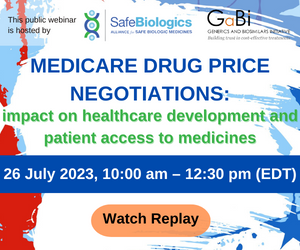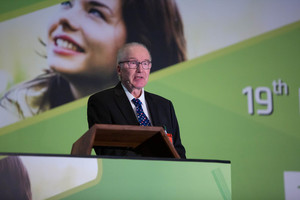The commoditisation of generic medicines markets could be a real threat to the sustainability of the industry, Ms Francesca Bruce of Scrip News heard at the European Generic medicines Association's (EGA) annual conference recently held in Barcelona, Spain.
EGA meeting Barcelona 2009: commoditisation risks sustainability of generic medicines market
Home/Conferences
|
Posted 01/09/2009
 0
Post your comment
0
Post your comment
According to Mr Peter Burema, Managing Director of Anneville Healthcare Consultancy, they have been focusing on switching to generics, but should not give them away as the cheapest commodity. He pointed to the UK, where the manufacturer's selling price for simvastatin 28 x 20 mg tablets is GBP0.16 (Euros 0.18), which adds up to around GBP1.92 (Euros 2.23) per patient per year. Thus it costs less than a Starbuck's cappuccino, he argued. Overall, generics take up around 79% of the total UK pharma market, and INN unbranded generics account for just below 60% of the not patent-protected market.
A commodity business model is not sustainable, but it could be an uphill struggle to stop it taking hold everywhere. “UK prices could become a reality elsewhere,” he said. In The Netherlands, healthcare authorities have introduced new tendering systems that exclude unsuccessful bidders from the market, while discount contract tendering is hitting generic medicines prices in Germany.
Meanwhile, the quality of generic medicines is improving and the cost of registering a product is increasing. Good manufacturing practices are becoming more stringent, as are pharmacovigilance burdens, while firms have to meet demands specific to each market, for example on blister sizes.
The consequences for the industry are severe. Patent expires worth more than US$110 billion (Euros 78.98 billion) will take place between 2010 and 2012 (according to IMS Health) but could generate just US$2.3 billion (Euros 1.65 billion) in revenues for the generic medicines industry, warned Mr Burema. Profits are already falling despite increasing market share, and some firms may even face losses, he said.
“Companies will move in and out of the market based on pricing levels because nobody can, or wants, to sell at a loss,” he said. This means that both pharmacists and patients could change manufacturers on a regular basis. Disrupted supply would then compromise trust in generic medicines and cause healthcare professionals to switch to newer products that are more costly despite not necessarily having the same benefit.
Certain pack sizes and strengths that are not profitable enough could disappear, resulting in less choice for patients. Some molecules could even vanish from the market altogether. Mr Burema urged industry to actively lobby for a branded generics market, which would ultimately lead to more incremental innovation. He also argued a ‘sensible’ reference pricing system should accompany a doctor's free prescribing rights.
Source: Scrip
Guidelines
US guidance to remove biosimilar comparative efficacy studies
New guidance for biologicals in Pakistan and Hong Kong’s independent drug regulatory authority
Policies & Legislation
EU accepts results from FDA GMP inspections for sites outside the US
WHO to remove animal tests and establish 17 reference standards for biologicals
ASBM/GaBI 2024 webinar on BIOSIMILAR RED TAPE ELIMINATION ACT (S2305)

Home/Conferences Posted 05/11/2024
ASBM/GaBI 2023 webinar on INTERCHANGEABILITY DESIGNATION FOR BIOSIMILARS

Home/Conferences Posted 12/12/2023
The best selling biotechnology drugs of 2008: the next biosimilars targets








Post your comment